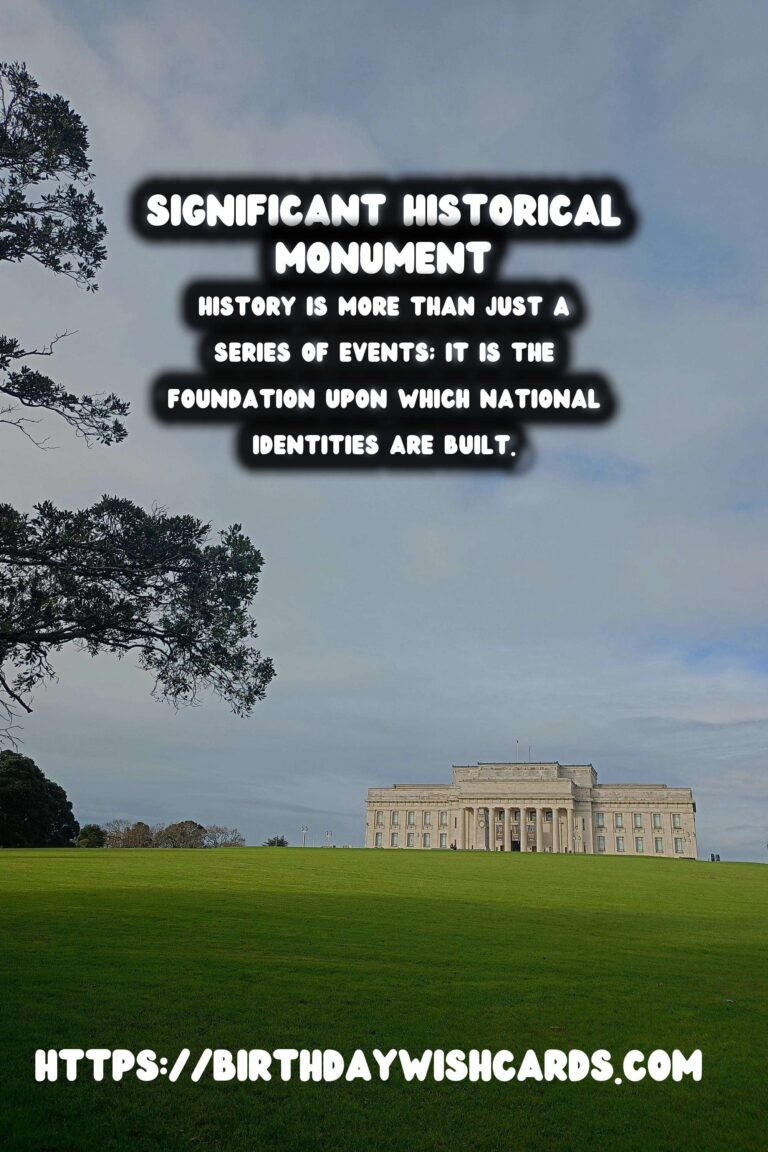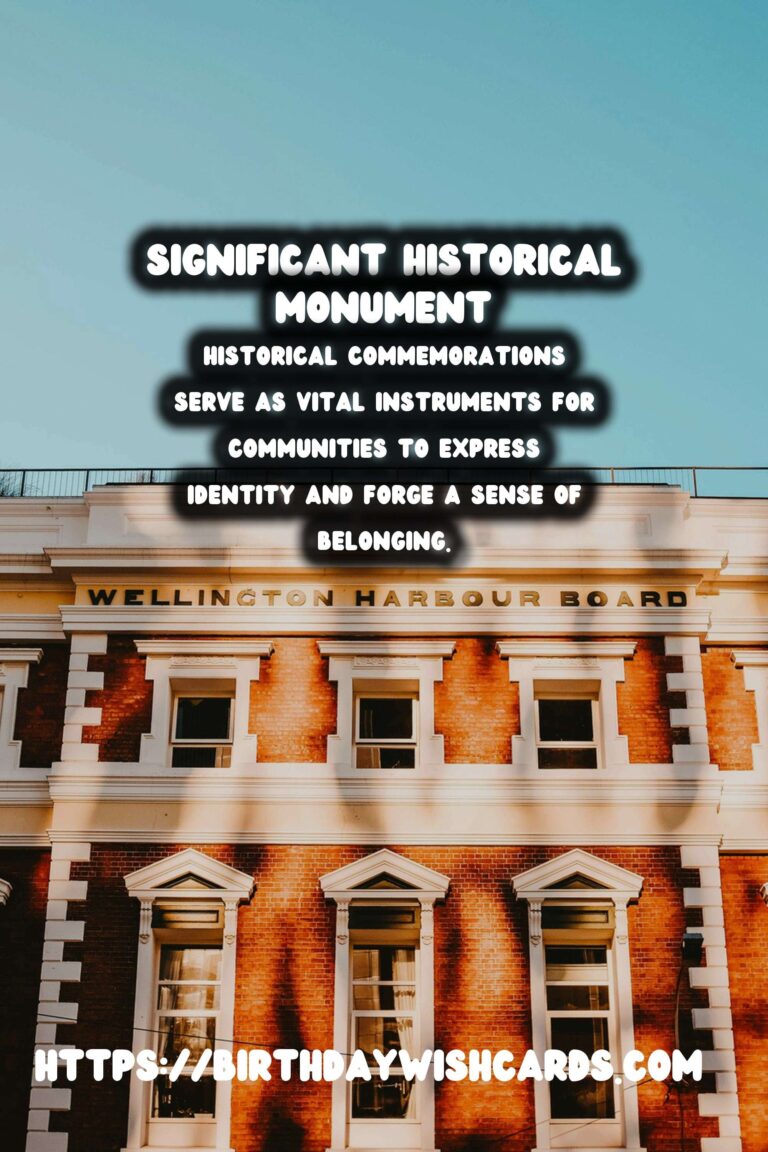
History is more than just a series of events; it is the foundation upon which national identities are built. Historical commemorations, through events, monuments, and celebrations, serve as vital instruments for communities to express this identity. Across the globe, nations utilize these commemorations to forge a sense of belonging, pride, and acknowledgment of shared past experiences.
The Role of History in National Identity
The fabric of a nation’s identity is woven from the threads of its historical experiences. Historical commemorations offer a platform for people to connect with their past, understand their present, and shape their future. They are moments that allow society to pause and reflect on the significant events that have molded their identity, encompassing both triumphs and tragedies.
Types of Historical Commemorations
Historical commemorations take many forms. National holidays often mark significant events such as independence, revolutions, or key victories. Monuments and memorials stand as tangible reminders of the past. Festivals and reenactments bring history to life, allowing new generations to engage with their heritage in meaningful ways.
National Holidays
One of the most ubiquitous forms of commemoration is the national holiday. Whether it’s Independence Day in the United States or Bastille Day in France, these holidays offer citizens a moment of unity, a reminder of shared values, and a sense of pride rooted in their nation’s achievements.
Monuments and Memorials
Monuments and memorials are powerful tools in preserving history, enabling people to honor past heroes and remember pivotal moments. The Vietnam Veterans Memorial in Washington, D.C., and the Hiroshima Peace Memorial in Japan exemplify how structures can become sacred places of reflection and education.
Festivals and Reenactments
Festivals and reenactments bring vitality to historical commemorations. Events such as the Carnival in Brazil or medieval fairs in Europe not only celebrate local history but also foster tourism and community spirit. These gatherings are more than celebrations; they are enactments of cultural remembrance that strengthen community ties.
The Impact of Commemorations on National Unity
Historical commemorations have a profound effect on national unity. They create shared memories, fostering cohesion among diverse groups within a country. By celebrating the past together, communities forge stronger bonds and reinforce a collective identity, even amidst varying contemporary viewpoints.
In multicultural societies, these commemorations can also serve as educational tools, highlighting diverse narratives and ensuring inclusivity. Recognizing the histories of all ethnicities and cultures within a nation is essential to building respect and understanding among its citizens.
Challenges in Historical Commemorations
While commemorations play a pivotal role in national identity, they can also be sources of controversy. The selection of which events to commemorate or the narratives to highlight can lead to disputes, especially in countries with divisive pasts. The challenge lies in crafting inclusive commemorations that acknowledge historical complexities without alienating any group.
Moreover, with the passage of time, historical events can be interpreted in various ways. Modern commemorations must balance traditional values with contemporary perspectives, ensuring that history remains relevant and accessible.
The Future of Historical Commemorations
As we advance into the digital age, the role of technology in historical commemorations cannot be overstated. Virtual reality experiences, interactive exhibitions, and social media platforms offer new ways to engage with history, making it more accessible, especially to younger generations.
Innovative commemorations can involve more people more deeply, enabling immersive experiences that transcend geographical boundaries. As nations continue to evolve, so too must their commemorative practices, adapting to diverse narratives and forging new traditions that resonate with the times.
Conclusion
Historical commemorations are pivotal in shaping national identity. They provide communities with opportunities to honor their past, celebrate shared achievements, and learn from history’s lessons. As we navigate the future, it becomes crucial to balance tradition with innovation, ensuring that commemorations remain inclusive, relevant, and impactful.
History is more than just a series of events; it is the foundation upon which national identities are built. Historical commemorations serve as vital instruments for communities to express identity and forge a sense of belonging.
#NationalIdentity #HistoricalCommemorations

